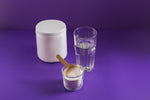
Creatine and Exercise Performance: Which Way Does It Go?
, by Sandesh Prasannakumar, 7 min reading time
Stay tuned, Your Favourite supplements will be back in stock soon!
Stay tuned, Your Favourite supplements will be back in stock soon!
Stay tuned, Your Favourite supplements will be back in stock soon!
Stay tuned, Your Favourite supplements will be back in stock soon!
Stay tuned, Your Favourite supplements will be back in stock soon!
Stay tuned, Your Favourite supplements will be back in stock soon!
Stay tuned, Your Favourite supplements will be back in stock soon!
Stay tuned, Your Favourite supplements will be back in stock soon!
Stay tuned, Your Favourite supplements will be back in stock soon!
Stay tuned, Your Favourite supplements will be back in stock soon!

, by Sandesh Prasannakumar, 7 min reading time
Creatine is one of the most popular sports supplements among sportspeople and other people who engage in various forms of exercise. However, does it really do wonders for exercise performance? And is it safe? Perhaps it is time to dive into the deeper nuances of what creatine is, how the molecule is utilized within the human body, and what the exact impact is as inferred from the scientific data.
Creatine is a molecule that is synthesized in the human body and predominantly deposited in the skeletal muscles. This is particularly important in giving energy for the contraction of muscles, especially in activities that require maximum force for a short time, such as sprinting or lifting weights. Creatine can also be obtained through food products, especially red meats and fish; however, the supplements are manifold more potent.
During vigorous activities, your body relies on ATP energy, which is stored in cells as the primary energy source. However, ATP is only found in small supply and is utilized in the blink of an eye/ Not for long. Enter creatine – an ergogenic aid that aids in the fast recuperative phase in a muscle’s energy supply so you can sustain optimally for a few seconds more before the onset of fatigue. Taking creatine supplements boosts the amount of creatine phosphate available, thereby offering more material to use to replenish ATP.
Decades of research indicate supplementing with creatine can improve performance in activities requiring strength and quick bursts of power, including decades of research indicate supplementing with creatine can improve performance in activities requiring strength and quick bursts of power, including:
Creatine does confer a discernible performance advantage when consumed as directed for high-intensity, short-duration, and anaerobic activities, even though, individual and type of activity impacts the extent of improvement.
The literature contains hundreds of research articles focusing on creatine supplementation, and no adverse effects have been proven when taking short- or long-term creatine regularly at optimal dosages. There are some complaints about side effects, where people may feel nauseous or have an upset stomach, yet most people face no side effects at all. Of course, attributed to the absence of long-term controlled trials, the experts suggest the same: it is better to avoid high doses for longer periods just to err on the safer side. However, as of now, creatine, a supplement, has a shockingly good safety profile.
Suppose your fitness goals are to become a muscle mass gainer, a powerlifter, a sprinter, a football or other team sports player, a HIIT trainer, or somebody who needs to build strength for any other physically demanding activity quickly. In that case, creatine is a supplement you should be taking. Though it is illuminated by law, safe, and cheap, it can help you push harder in your workouts and get faster outcomes in the long run. At the very least, creatine warrants a trial at least to determine whether you fall into the category of individuals who report improvements. This should, however, be taken with water and other fluids, and recommended loading should be adhered to. But like any supplements, it is advisable that before incorporating any new substance into your system, you should first clear it with your doctor. For the best quality creatine, visit Genetic Nutrition.
Q: When one should consume creatine?
A: There’s compelling evidence that the proper time to consume creatine is either before or after a training session. It is better to take it just prior to exercise to ensure that your cells are saturated to the maximum to facilitate the release of ATP during exercise.
Q: Does creatine loading and using it mean that I have to cycle it, or can I continue using it on a regular basis?
A: Currently, most fitness gurus discourage cycling due to the various adverse effects that cycling has on the human body. Research shows that users are better off continuing to use the product and not taking breaks, as this will yield ongoing benefits. Nevertheless, many athletes endure short cycles to assist the body’s spontaneous production.
Q: Are there any differences in the reactions of different people toward the consumption of creatine?
A: Yes. Lack of creatine before starting supplementation, the differences in muscle fiber types, and genetic factors affect the efficiency of using creatine. Some undergo dramatic transformations in their appearance, while others appear almost like non-responders. However, according to the majority of the studies, there are existing positive effects, albeit not so significant.